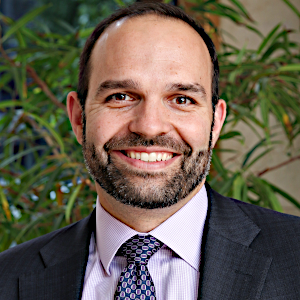
For years many radio executives have been saying that the government needs to loosen ownership regulations in order for broadcasters to compete with the big digital companies like Facebook and Google who are now pocketing massive piles of local ad revenue dollars. NAB CEO Curtis LeGeyt continued that call yesterday.
LeGeyt was the featured speaker at The Media Institute’s Communications Forum luncheon Tuesday. He said, lawmakers and regulators must modernize media ownership laws to reflect the realities of the marketplace. “A report released last Congress by Senate Commerce Chair Maria Cantwell noted that Google and Facebook control an estimated 77 percent of locally-focused digital advertising. Yet broadcasters still operate under a set of rules that pretend they only compete with one another.”
LeGeyt added that broadcasters are adapting both their business models and their content to keep up with the rapidly changing media landscape. However, he adds, the government must adapt as well. “Outdated laws force us to compete with one arm tied behind our back for advertising dollars and audience. Congress and the FCC must take a fresh look at whether these decades-old regulations are helping or impeding broadcast competition and media diversity.”
Modernizing ownership rules were getting a fresh look under former Chairman Ajit Pai. That appears to have stalled under the current administration. And, many believe, with a Democratic administration loosening ownership caps is highly unlikely.






Everyone likes to complain about consolidation in the radio business. The blame bad radio on too much consolidation. Then they say they don’t need radios because they have their phones. But nobody ever complains about consolidation in the phone business. How many phone companies are there? Maybe if radio was more like the phone company, they’d be more successful. We live in a consolidated world where radio is forced to exist under rules that don’t apply to anyone else. Then people wonder why radio isn’t more like those other things.
“Hue” is one of the smarter posters these days. The 3 issues covered in that post are the biggest complaints about “broadcast” radio in 2022. The point here is “relevance”. It doesn’t seem likely that more consolidation will solve those problems. Allowing radio companies to originate 8 signals in one market is bad enough. To give them more will only exacerbate the relevance issue. Granted the big digital companies are grabbing a lot of ad revenue but are they profitable? Some are, many aren’t. Good products find a need and fill it, until something better comes along. Radio faces myriad competitors that exist, but aren’t necessarily better – yet. More consolidation can’t be good until the relevance factor is fixed-as evidenced by the above listener’s perspective. We see radio’s issues and if the digital companies find a way to fix them and become more accessible, the tower and transmitter tech is through.
HueKnew, we all know that digital media has taken its toll on overall audience for OTA radio and TV. But reading news stories doesn’t work for the car commuting crowd. The big all news AM stations still have excellent drive time ratings as do FM stations broadcasting NPR news blocks and even those local FM’s who still do local community news and traffic reports. Outside of commuter hours, digital media has become very popular for both news and entertainment, which is why smart broadcasters have invested in their websites too. Too bad the younger demo has grown up with little interest for in depth reporting. Just provide them with quick summary statements or very short video clips or sound bites. I hope, for the health of our country, this trend eventually reverses as they mature.
From a listeners perspective.
1. Same 15 songs over and over
2. Too many 50+ (age) hosts
3. Way to many commercials
Most people under 40 want and listen to their own playlists and or a texting to and from home.
Since people can get the news and weather anytime on their phones, ask any younger demo if they ever listen to a radio.
Maybe change the name radio to local communicator.